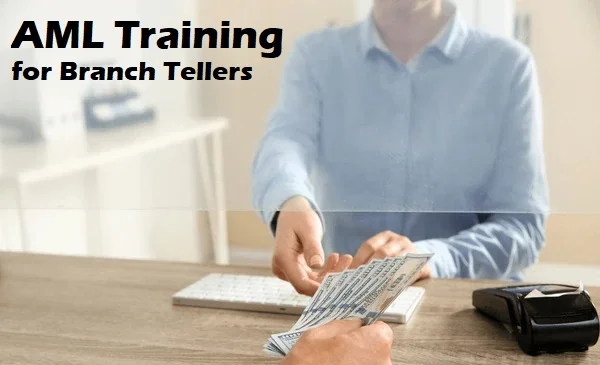This course is designed for tellers working at cash tills at Banks and Money Service Bureaus (MSBs) to help them identify, prevent, and report money laundering activities conducted by walk-in customers. By focusing on real-world scenarios and practical applications, this training equips frontline staff with essential AML knowledge and skills to ensure compliance with regulatory requirements.
Key Learning Objectives:
- Understand the basics of money laundering and its impact on the organization.
- Identify common money laundering techniques used at cash tills.
- Conduct effective Customer Due Diligence (CDD) and Know Your Customer (KYC) checks.
- Recognize suspicious transactions, such as structuring and rapid cash movements.
- Follow internal reporting procedures and file Suspicious Activity Reports (SARs).
- Implement best practices for engaging customers and maintaining compliance.
Introduction to Money Laundering
- Definition and key concepts of money laundering
- The importance of AML compliance for tellers handling cash transactions
- Overview of global and local AML regulations
- Consequences of non-compliance (fines, legal actions, reputational damage)
Understanding Money Laundering Techniques
- Common methods used by criminals (structuring, smurfing, layering, and integration)
- High-risk cash transactions and red flags for tellers
- The role of digital currencies and remittance fraud in cash-based transactions
Customer Due Diligence (CDD) and Know Your Customer (KYC)
- Importance of verifying customer identity at the cash till
- How to conduct KYC checks effectively while handling cash
- Identifying suspicious behavior in walk-in customers at the counter
- Enhanced Due Diligence (EDD) for high-risk cash transactions
Recognizing Suspicious Transactions
- Large cash deposits or withdrawals and multiple small transactions (structuring)
- Transactions inconsistent with customer profile or business activity
- Customers making repeated cash transactions under reporting thresholds
- Unwillingness to provide identification or source of funds at the cash till
Reporting Suspicious Activities
- The role of the teller in reporting suspicious cash transactions
- How to complete a Suspicious Activity Report (SAR) for cash transactions
- Internal reporting procedures and escalation policies for cash-related concerns
- Maintaining confidentiality and avoiding tipping off the customer
Preventative Measures and Best Practices
- Compliance with transaction monitoring protocols for cash transactions
- Engaging customers with appropriate questioning techniques at the till
- Effective record-keeping and documentation for cash transactions
- The importance of ongoing AML training and refresher courses for cash till tellers
Case Studies and Practical Scenarios
- Real-world examples of money laundering attempts at cash tills
- Interactive exercises on detecting suspicious cash activities
- Role-playing exercises for engaging with customers at the counter
Assessment & Certification
- Multiple-choice quiz on key AML concepts specific to cash till operations
- Practical scenario-based assessments for handling suspicious cash transactions
- Certificate of completion for successful participants
About the Trainer
With nearly 30 years of distinguished experience in financial sector, this accomplished professional is recognized as a leading expert in banking operations, regulatory compliance, international trade, and professional development. His career is marked by significant contributions in key areas such as foreign exchange operations, exchange policy, statistics, development finance, and training.
A dedicated advocate for capacity building, he has extensive experience in designing and delivering high-impact training programs, particularly in AML (Anti-Money Laundering), CFT (Combating the Financing of Terrorism), and TBML (Trade-Based Money Laundering) compliance. His expertise in AML training has been instrumental in strengthening regulatory competencies across the financial services industry.
As a certified trainer, he has led specialized programs on Forex Operations, Compliance, Supply Chain, and International Trade, equipping professionals with critical skills to navigate complex regulatory landscapes. His training initiatives have reached a diverse range of institutions, including commercial banks and multinational corporations, fostering operational excellence and compliance adherence.
Academically, he holds an MBA in Banking & Finance, along with degrees in Law, Economics, and Engineering, bringing a multidisciplinary approach to problem-solving and strategic development.
A published author and thought leader, he has contributed extensively to literature on Trade Finance, Compliance, and International Trade, shaping best practices in the sector. His work has been recognized through numerous awards and accolades for excellence in training, consulting, and knowledge-sharing.

